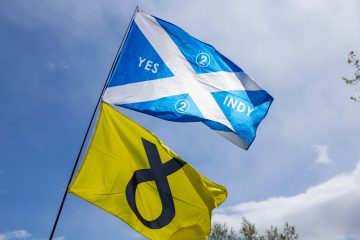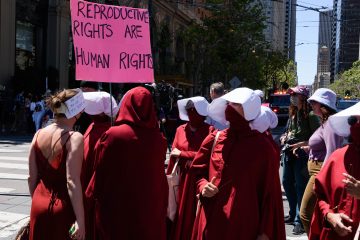
“Laters, baby!”: How the British Prime Ministers’ discourse of delay turned Indyref2 into a peripheral issue
Scotland held a vote on independence on 18 September 2014, with 55 percent of the voters rejecting leaving the United Kingdom. Yet, the issue was thrust back into the spotlight in 2016, when the UK voted to withdraw from the EU, with repeated calls for a second Scottish plebiscite growing louder ever since. As in 2014, the generally accepted (albeit not universal) position has been that Westminster’s approval is needed to put a referendum on Scottish independence beyond legal doubt. The two British Prime Ministers (PMs) who held office during this time (2016–2021), Theresa May and Boris Johnson, consistently reiterated their opposition to another referendum and ruled out granting any such consent. In doing so, they employed various discourse strategies …

A Historical Perspective on the Political Limits of “My Body, My Choice”
In the context of the U.S. Supreme Court repeal of Roe v. Wade, the struggle for access to abortion and reproductive freedom continues. In Germany, abortion remains a criminal act only granted under specific conditions and requirements. Apart from ethical and legal requirements, abortions are hardly mentioned in most medical curricula. There is a shortage of medical practices that perform abortions, especially in rural areas and if there is no “medical or criminological indication”, the procedure is not covered by health insurance, costing between €300 to €600. §218 of the criminal code that criminalises and regulates abortion is a remnant from the imperial penal code of 1871 (only the GDR legalised abortion in 1972). Radical feminists in Germany were at …









